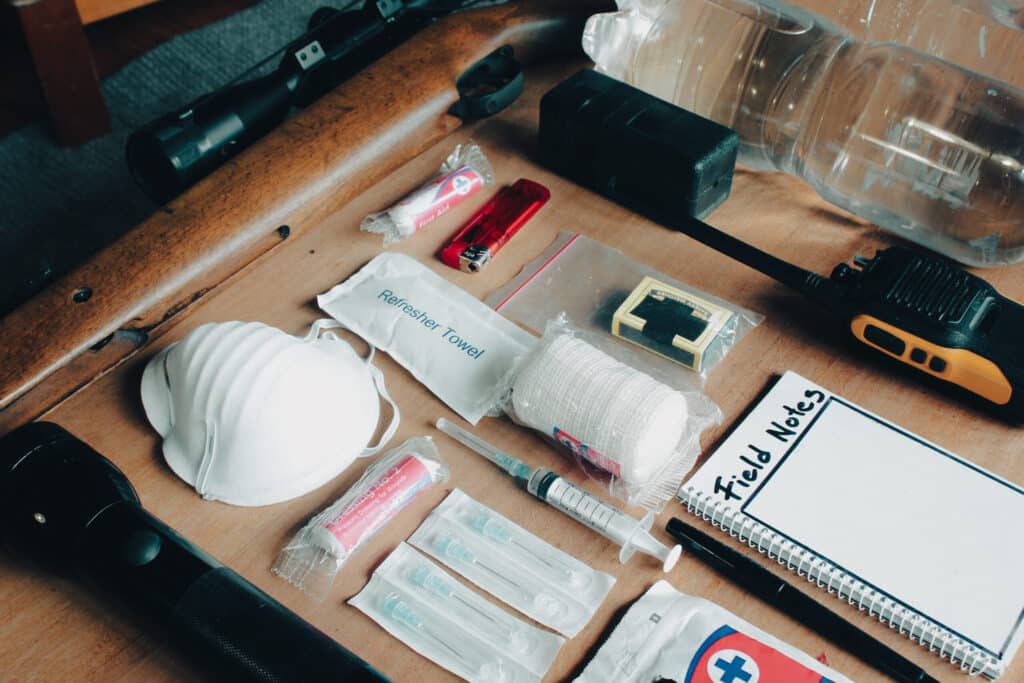It’s generally recommended to start taking Atovaquone:Proguanil (generic Malarone), which is one of the most commonly-prescribed malaria medications, two days before traveling.
Keep in mind – the exact dose & instructions will be provided by your healthcare provider. This article provides general recommendations, not to be taken as final medical advice.
What about during & after travel?
It’s recommended to continue taking it daily (during your stay) – along with every day for 7 days after leaving the area.
This is because Atovaquone:Proguanil (generic Malarone) works by interfering with the growth and reproduction of the malaria parasites in the body.
Atovaquone and proguanil work together to target different stages of the parasite’s life cycle. This is best accomplished by taking Atovaquone:Proguanil (generic Malarone) before, during & after travel.
Are there alternatives for malaria prevention (beyond malaria tablets)?
As always, when traveling to high-risk areas, you should:
- Apply insect repellent
- Wear clothes that cover your body (as much as possible)
- Ideally stay in air-conditioned areas
However, these measures won’t completely protect against malaria.
Many travelers strictly follow these guidelines, but unfortunately still contract malaria.
According to doctors, people traveling to high-risk areas should take antimalarials to help safeguard themselves. The extra layer of protection can help give you a relaxing peace-of-mind during travel.
What’s the best way to get a prescription for malaria tablets?
While heading to a doctor’s office is the traditional method for getting a prescription, most travelers prefer other options.
Some of them opt to visit a travel clinic, or speak with their primary care provider, but these will often come with long delays to see a doctor – and unexpected “surprise” costs for medicine.
Fortunately, with online telehealth, you can get a prescription for malaria tablets shipped directly to your doorstep – and normally for cheaper.
Make sure to weigh the pros and cons of each option, in order to have the best experience preparing for your travels.
What’s the cost?
This is where things might get concerning.
With travel clinics and in-person care, you’re often hit with much higher costs than you’d expect.
This is because, oftentimes, they assume you don’t have another option. So they increase the price on you.
However, new telehealth options are available, and normally much cheaper – even as low as $150 including consultation.
Are malaria medications actually needed?
This depends on where you are traveling to.
For many countries/regions in Africa, Asia and South America (with high prevalence of malaria), doctors and the CDC recommend taking them.
Malaria can be deadly in worst-case-scenarios, so it’s worth doing your research to determine whether the risk is worth taking or not. By understanding the risk & taking necessary precautions, you can make sure you don’t experience any unwelcome surprises on your travels.
Does insurance cover malaria tablets?
Generally no – standard insurance plans don’t cover travel clinic visits, travel doctors or travel meds (including Malarone).
But, certain specialized travel insurance plans may cover a portion of the cost. Be sure to review your policy in-depth to check for coverage.
Online telehealth options may offer discounts when you purchase the medication with their consultation. Many travelers prefer this option.
Overall, prevention is key to avoid contracting malaria on your travels. Make sure to do your research ahead of time and weigh all of your options before making a decision that works best for you.
Can you get them over-the-counter?
Atovaquone:Proguanil (generic Malarone) is only available with prescription. It’s not available over-the-counter.
It’s worth consulting with a doctor, to make sure you’re taking the right medication for your travels. A doctor will be able to provide medical advice tailored to you, and make sure you’re taking the correct amount for your travel duration.
Final thoughts
When traveling to a high risk area – it’s essential to take the proper steps to safeguard against malaria.
This may include taking Atovaquone:Proguanil (generic Malarone) before, during and after travel – as recommended by your doctor. But getting a prescription, and understanding the cost of Malarone can be tricky.

